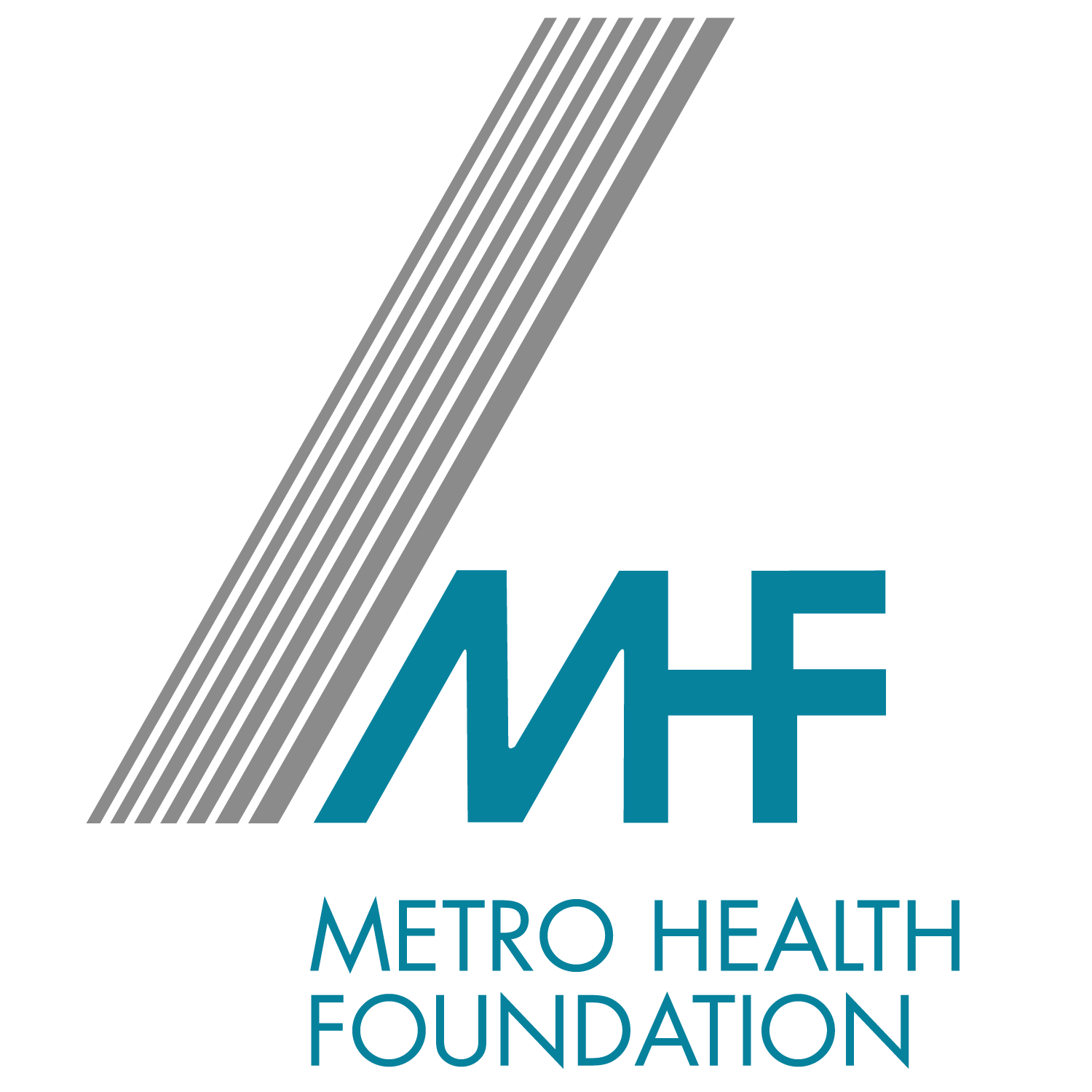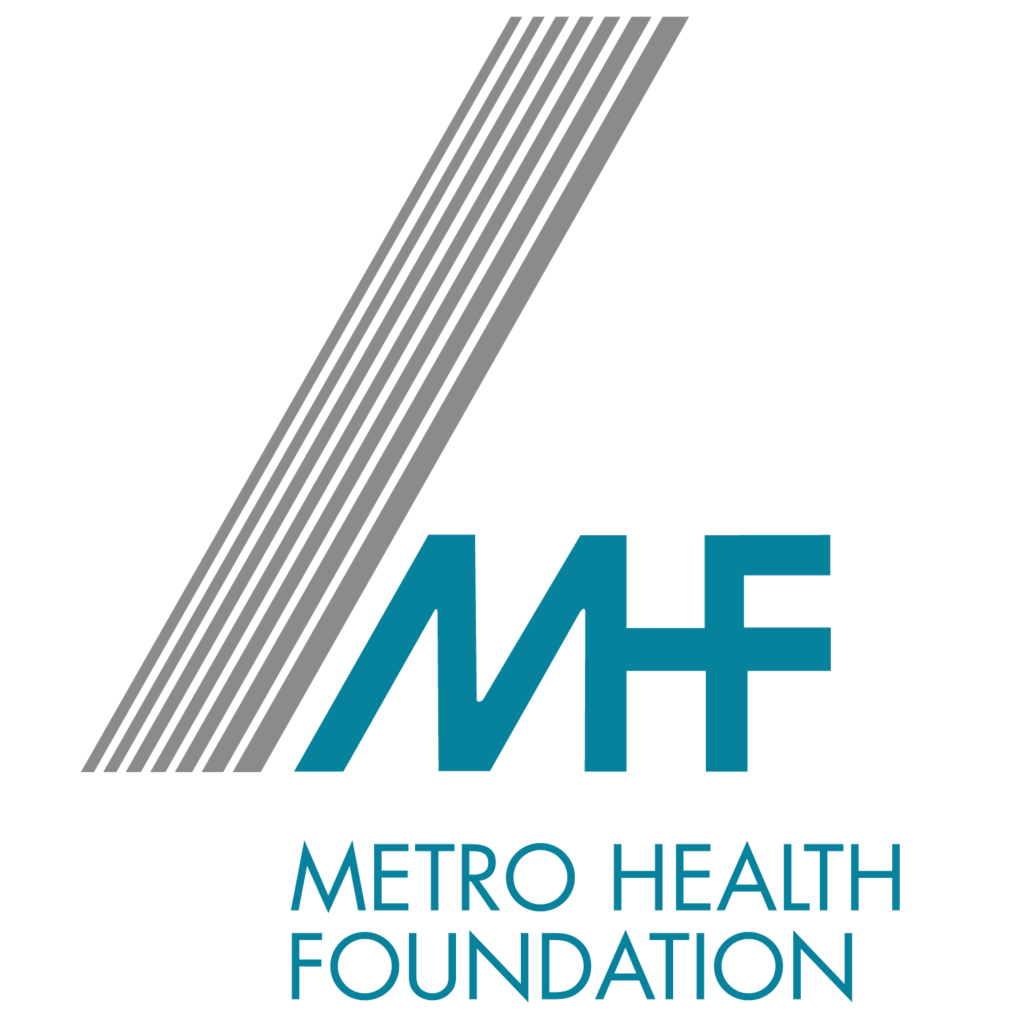“Healing the world requires much more than checks. It demands personal action and involvement.”
Our Executive Director
Jessica L. Brown
Our Board
Judith A. Bean, PhD
Valerie Herod Belay
Laura J. Champagne
Cheryl L. Chandler – Vice President
Raymond Cochran, CPA – Treasurer
Mark R. Lezotte, JD
Madiha Tariq, MPH
Richard E. Teets, PhD – President
Our History
This history was written by Glenn Kossick, Metro Health Foundation’s founding Board President and then Executive Director, in recognition of the Foundation’s 25th Anniversary.
The origins of Metro Health Foundation, its purpose, methods and priorities, spring from the ongoing belief in community approaches to address complex health issues.
Early in 1972 the Black-Polish Conference, a community group established by Congressman John Conyers, Jr., came to the consensus that access to basic primary health care was a huge unmet need in their Hamtramck and eastside Detroit community. Wayne State University was contacted for assistance and an advisory committee was established. 100 community residents came together to form a working group that became the Northeast Community Health Council (NCHC).
Grants were received from United Community Services and the American Association of Medical Colleges to fund the development of a community-based Health Maintenance Organization, run by a Board of Directors elected by its enrollees. The University’s advisory committee and the NCHC agreed to an organizational structure, and the first meeting of Wayne Community Health Services (WCHS) was held in 1974. Doris Fell, representing Hamtramck United Social Services (HUSS), was very involved. The NCHC lobbied in Lansing for the passage of legislation allowing HMOs as the “best approach for consumers to direct and control quality of their health care.” In July, 1975, the Michigan HMO bill passed and WCHS applied for federal funding to plan development and implementation.


The “Wayne Community Health Plan” was incorporated in 1975 as a health program relating to the Detroit community. The Health Maintenance Organization began providing care in 1977, when its name was changed to Group Health Plan of Southeastern Michigan. Glenn Kossick was its Chairman.
Federal government seed money was granted during its early years, along with various other grants that were then available to assist non-profit health maintenance organizations. But, federal funds for such endeavors gradually disappeared.
The funding pressures limited the range of programs and services that the HMO could provide. Competition drained away any discretionary funds.
To remain viable, Group Health Plan became a for-profit health maintenance organization. This was accomplished when it sold its assets to a Detroit area consortium of hospitals. The proceeds from the sale had to “continue for the public good.” The community had to benefit, so the remaining assets of Group Health Plan became the “start-up” assets of Metro Health Foundation in July 1986.
It took the sale of the HMO and the creation of the foundation to start doing the kinds of community-based health programs the Black-Polish Conference and the Northeast Community Health Council said they wanted and needed over a decade before. The first MHF grants were awarded on January 12, 1988.
The original intent of the HMO was “to improve the community health.” The Board of MHF continues to support this goal. A majority of the Board came from the Foundation’s “roots” – the community which brought about the HMO. The membership of the Board reflects the Board’s philosophy of identifying metropolitan agencies, institutions and organizations which can truly “do a lot with a little” thereby multiplying the effect of the grant dollars in meeting the community’s health care needs. Doris Fell, Glenn Kossick and Gloria Robinson were part of this original group.

Over its 25 years, Metro Health Foundation has developed, refined and restated certain principles which have become the basis for its grantmaking:
- The tri-counties of Wayne, Oakland and Macomb, with emphasis on the City of Detroit, is the geographic focus.
- Grants are characterized as “charitable” — because things can go wrong, and “philanthropic” — because things can get better. Over the years, approximately 20% of giving has been charitable, 80% philanthropic.
- Proposals that directly serve the health care needs of at-risk urban groups are the continuing focus of Metro Health Foundation.
- Collaborative proposals that combine the service resources and professional expertise of several organizations are the priority.
- Access to primary, physical health care services is the goal.
- Collaboration needs to take place among grantmakers as well as grantseekers. Metro Health Foundation views collaborative grantmaking with pooled resources as the best way to address complex community issues.
- Selecting worthy applicants and programs is challenging and difficult. After preliminary screening by the Foundation staff, applications are apportioned among three committees made up of Board members. Following their review of the applications, the committees present consensus evaluations and recommendations to the full Board.The Board then reaches final decisions based on the committees’ findings.
- The MHF Board views staff as a “grant to the community” enabling MHF to work full-time with other funders and area agencies on collaborative answers to unmet needs.

